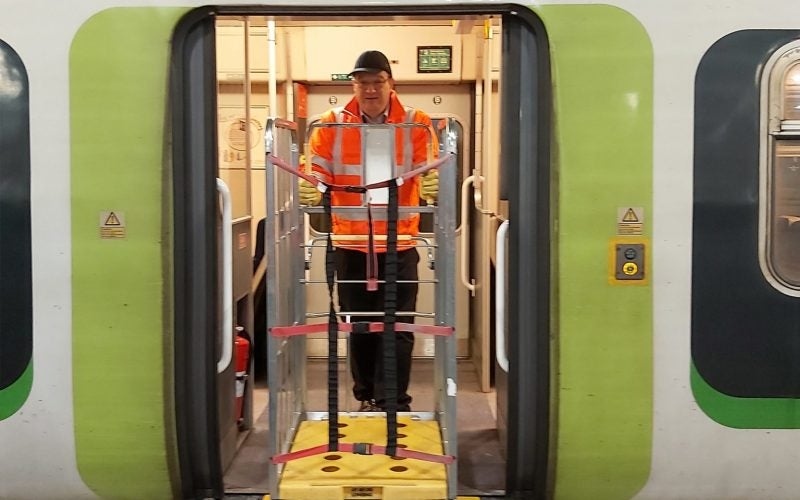
UK-based GB Railfreight (GBRf) has trialled the use of old commuter trains to express deliver parcels.
The trial was done using a Class 319 EMU train with a maximum speed of 100mph. The service was operated to London Euston station earlier this month.

Discover B2B Marketing That Performs
Combine business intelligence and editorial excellence to reach engaged professionals across 36 leading media platforms.
The trial showcased that the commuter trains could be loaded and offloaded using standard roll cages at most mainline stations in the UK.
The carriages could also accommodate ‘significant volumes of parcels’ when the seats were removed.
This trial marks the first instance in the UK where a commuter train was converted and used for cargo.
GB Railfreight is holding talks with the UK Government to explore how this service can help in providing supplies to the hospitals in the country.

US Tariffs are shifting - will you react or anticipate?
Don’t let policy changes catch you off guard. Stay proactive with real-time data and expert analysis.
By GlobalDataThe reuse of parcel delivery services to mainline stations is expected to boost the supply chains amid the outbreak, as well as offer a sustainable and reliable delivery option to online retailers.
GB Railfreight MD John Smith said: “We are committed to continuing to help the UK get through this period by ensuring that vital supplies are delivered. Rail freight has the advantage of being able to efficiently move very large volumes of goods in a safe and reliable way.
“This successful trial shows how the railways can play their role in helping the speedy delivery of vital supplies and we are keen to be able to do our bit to help the NHS meet the logistical challenge of keeping our hospitals supplied during this period of huge demand.
“Post-crisis, these services could play a role in reducing air pollution and carbon emissions associated with parcel deliveries. With deliveries being brought into the heart of cities by train overnight and last-mile deliveries then undertaken by electric-powered vehicles.”





